√70以上 keyword match types 176220-Keyword match types amazon
An introduction to keyword match types Finding the sweet spot between lots of traffic and quality traffic can be quite challenging, and this is why Google offers four different match types The keyword match types will determine how closely the keyword needs to match with the user's search query before it is considered for the keyword auctionSimply put, Google Ads keyword match types are a way for us humans to tell the Google search engine how and when we want our ads to show for a users search query It's important to know the differences in keyword match types as there are a number of ways they affect the way your campaigns will runThough four match types exist, you should only use exact match and broad match modifier in 95% of cases;
About Changes To Phrase Match And Broad Match Modifier Google Ads Help
Keyword match types amazon
Keyword match types amazon-Organizing campaigns per match type is no longer relevant;100% FREE Keyword Match Type Tool The quick, easy Adwords keyword wrapper tool Merge words, make keyword lists for your Google Adwords campaigns




Explanation Of Differences In Keyword Match Types For Seo And Adwords
Types of keyword matches Broad match Broad match is the default when it comes to keyword targeting in AdWords, which is why it is important to understand how it works Since the broad match is the most lenient keyword type, a search for the keyword "cheap laptop" might also bring up results for "laptop comparison" Keyword Match Types How your target keywords are matched with a user's search query is determined by the keyword match type There are three main keyword match types broad match, phrase match, and exact match There is also a fourth match type, modified broad match, that is a derivation of the firstWhen we download the Keyword Performance report using the Adcenter UI, we are getting certain keywords as Phrase match type (we also tick the keywordmatchtypeid) When we download the report using the adcenter api, we pass in the ff fields in the report private static final Please note that the MatchType column contains the delivered match
Bing Ads and Google AdWords have three different keyword match types broad match, exact match and phrase match Both platforms also have the option to add negative keywords to your campaigns, which we'll also address in this section What Are the Keyword Match Types? Keyword Match Type Categories 1 Broad Match Broad match types are treated as a general guideline They reach the widest audience because they pick up any word or order of words from the search query This can include misspellings, synonyms, singular and plural forms, related searches, and other relevant variations
Summary Your keyword is not the same as the search term for which your ads show;Advertisers can take advantage of this match type by adding the target keyword in quotations to the negative keyword list in their Google Ads account Using the negative phrase match type will prevent ads from showing when all terms from the keyword are present in the search query in the same order as they appear in the negative keyword listA match type is a keyword setting in Apple Search Ads Advanced search results campaigns that helps you control how your ads are matched to user searches There are two types you can apply Broad match and exact match We recommend you run campaigns with both match types to ensure good coverage and performance
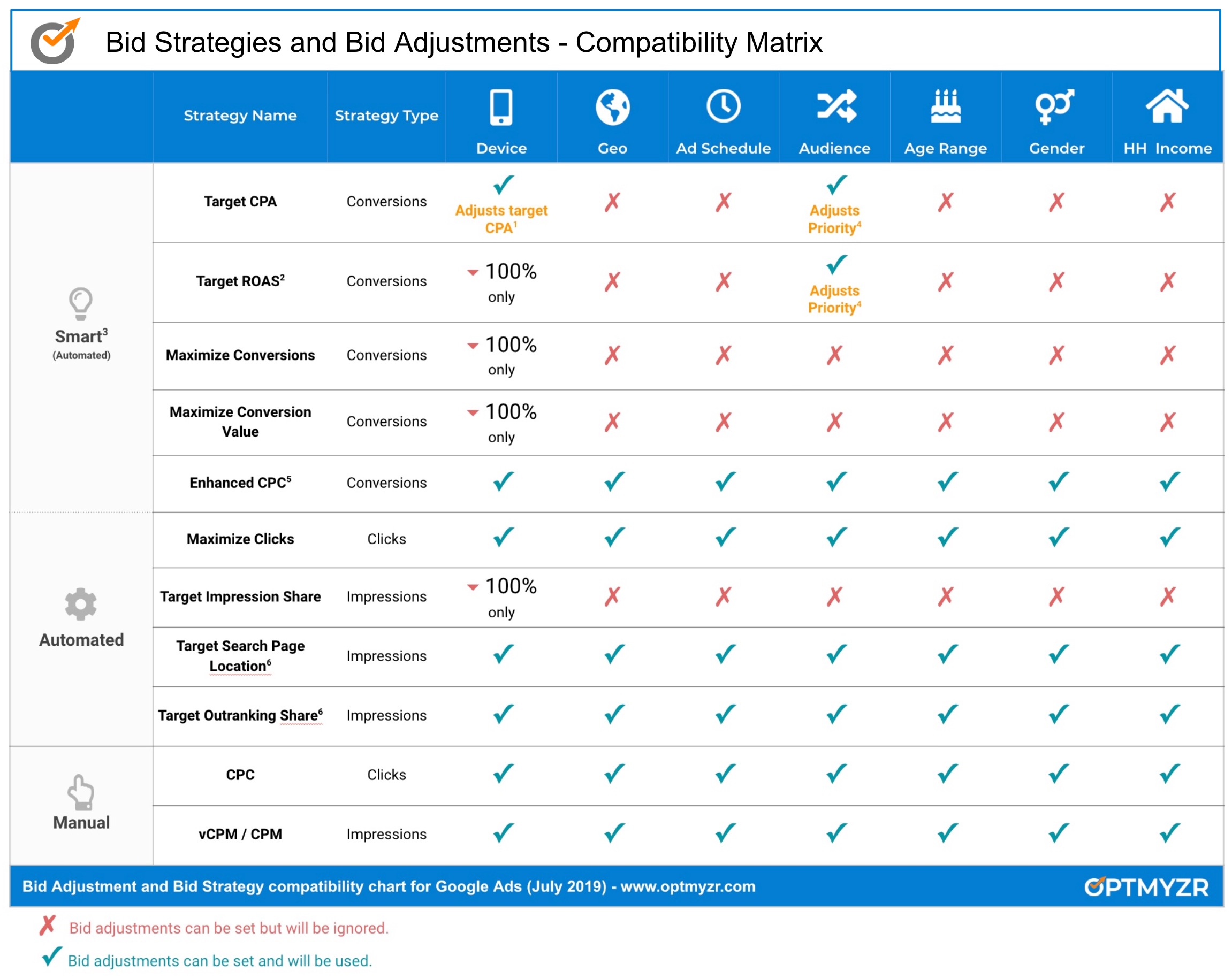



Do These 3 Things Before Google Changes How Keyword Match Types Work
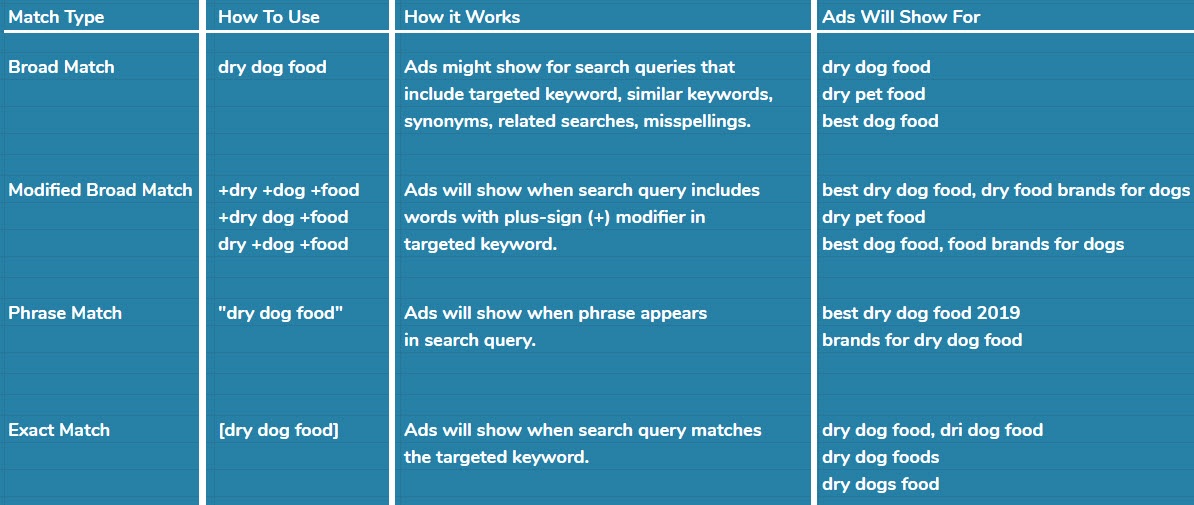



Google Ads Keyword Match Types Explained Surfside Ppc
Keyword match types determine what search queries can trigger your ads in Google There are 4 keyword match types in Google Ads broad match, broad match modifier, phrase match and exact matchBroad match will trigger your ads for the widest range of searches while exact will only trigger searches that match the keyword Keyword match types are the parameters that can be set on keywords These limits control which search terms trigger your ads to appear on These are the five main keyword match types Broad match (max reach, min relevance) Modified Broad match (slightly lower reach, greater relevance) Phrase match (medium reach, medium relevance)
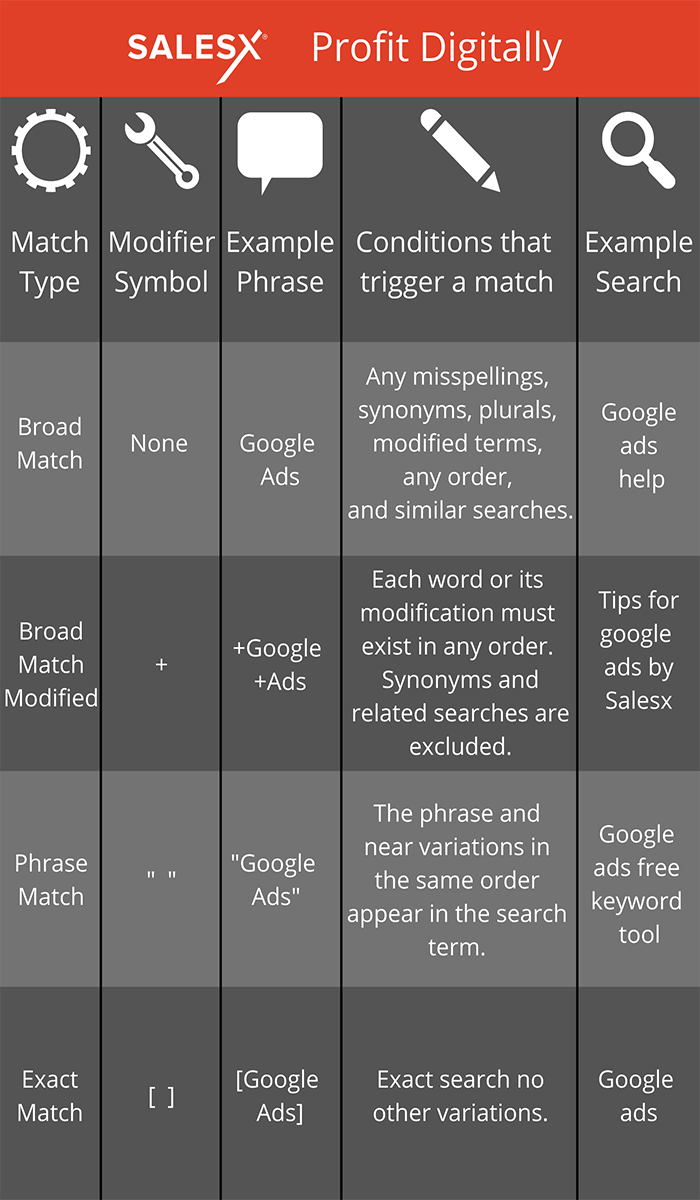



Free Keyword Match Type Tool Powered By Salesx




What Does Google Ads Match Type Update Mean For Search Seer Interactive
Here are the 4 Google match types you need to know to succeed with Google ads in #1 Broad Match The most basic match type, broad matches allows the keyword to trigger your ad to show when someone searches for The first AdWords Match Type we are going to discuss is the Phrase Match Keywords This is the match type that includes all the relevant keywords that include your main keyword in the same order Keyword Match Types in Google Ads Usually while starting the Google Ads campaign, you will be targeting the specific keywords for which you need to show the ads for While you target the keywords, you need to choose the keyword match type for each keywords and based on the match type you chose, your ads will be shown to the normal users in Google




Broad Phrase Exact Amazon Keyword Match Types Explained




How Keyword Match Types Work With Close Variants 18
Broad match keywords are mostly irrelevant for eCommerce, and Dynamic Search Ads are a much better solution to keyword Broad Match First and foremost, broad match keywords enable you to reach the most people out of all the keyword match types As the name suggests, broad match keywords include relevant variations of your target keyword, such as synonyms, misspellings, and other relevant terms For example, some broad matches of the keyword "bluetooth Before automation, segmenting match types was a way to have more control over keyword bidding Google continues to roll out more automation when it comes to its bidding strategies Manual CPC and eCPC are no longer best practices, and Google continues to urge you to switch over to a more automated structure



About Keyword Matching Options Google Ads Help




Google Ads Match Types Have Changed Again Here S How To Take Advantage Amsive Digital
How do keyword match types work in Google Ads? The most "loose" of the match types, broad match is the default for Google AdWords campaigns It instructs Google to allow your ads to show when a users search query contains any ofBroad match keywords are the least targeted of them all Example keyword #1 sockAll of these Match Type changes will go into effect sometime next month and it Exact match is the most restrictive of all keyword match types Your exact match keyword will only show your ad in Google if the term precisely matches your keyword or close variations with the same meaning That gives you the most control over where your ads show up




A Guide To Ads Keyword Match Types Hallam
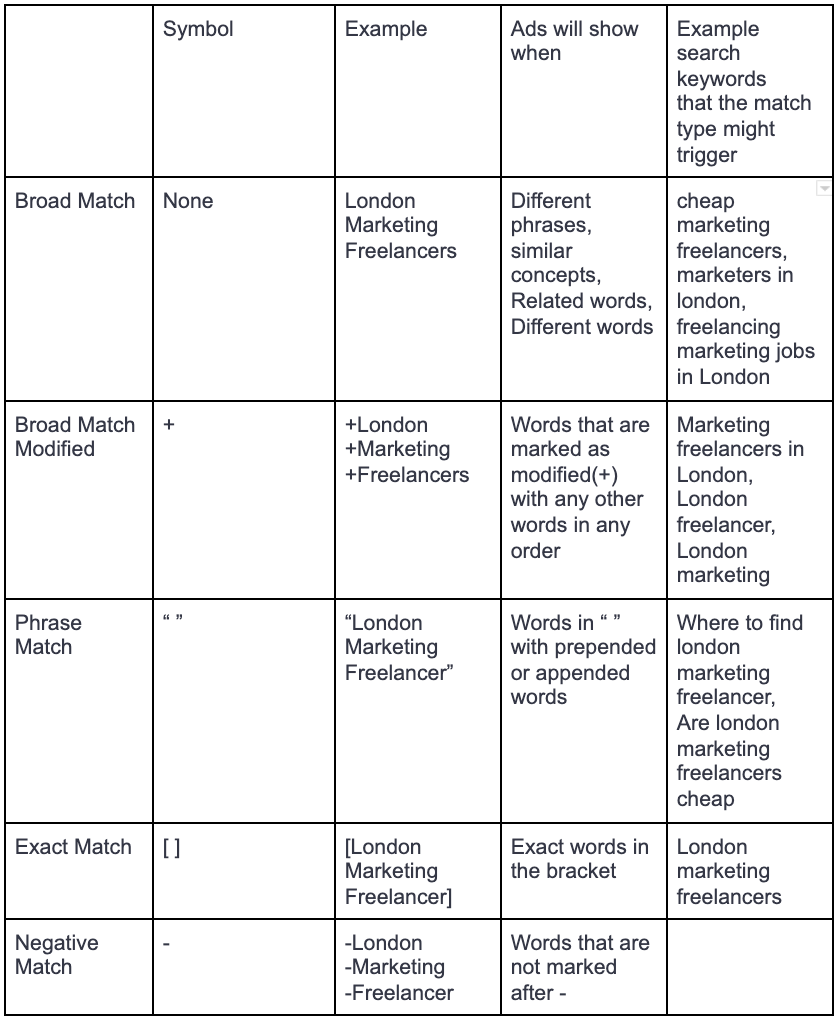



An Ultimate Guide To Keyword Match Types On Google Ads By Calvin Sung Medium
Google Ads Keyword Match Types You can first start by viewing our image below to learn more about broad match, modified broad match, phrase match, and exact match keywords Hopefully, that visual will be helpful for understanding how all of the keyword match types work for your targeting Match types allow advertisers to designate how aggressively or how restrictively to match keywords to users search queries There are four different match type to understand and use Broad Match, Modified Broad Match, Phrase Match, and Exact MatchEach of these match types have their advantages and disadvantages The keyword matches generally fall into three categories broad match, phrase match, and exact match A broad match will reach the widest audience because Google or Bing will show your ads to




Google S Simplified Match Types To Improve Ppc Performance Smarter Digital Marketing




How To Reach The Right Customers With Google Match Types
Search engine marketing (SEM) is great for letting you choose specific searches to trigger your ads But search engines often show your ads for keywords thatThe search engines give advertisers even more control over when their ads will be triggered with keyword match types There are four match types, in the order of most to least restrictive Exact matchAdwords keyword match types are the keyword parameters that control which search queries your Google ads appear for There are four keyword match types in Ads and each match type has its advantages and disadvantages Broad Keyword Match Type The broad keyword match type if the default type in Google ads and with the widest reach
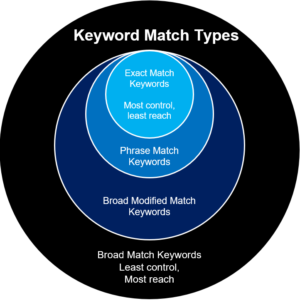



Google Ads Announces The End Of Broad Modified Match Changes To Phrase Match Keywords Searchlab Digital




Keyword Match Types Supercharge Your Next Search Campaign Linear
Every keyword you add to your account can be assigned one of four possible match types broad, broad match modifier, phrase, or exact You assign a match type by adding symbols to your keywords Let's take a look at the symbols associated with each match type and how it affects the reach of your keywords Broad Match Type Ads Broad keyword match type targeting is the widest net you can cast without running an Automatic campaign Let's go back to our Apple Slicer example For a Broad match type campaign, the keyword phrase must contain the words apple and slicer to be effective but not necessarily together, or in that orderMatch types are on a spectrum from least restrictive (broad match) to most restrictive (exact match), in this order Broad match > Phrase match > Exact match If you do not specify bids for all match types, bids are inherited from less restrictive match types




Explanation Of Differences In Keyword Match Types For Seo And Adwords




Why Google Adwords Keyword Match Types Are Important
When creating a text ad in your PPC campaign, you can select broad match, modified broad match, phrase match, or exact match for your keyword match type Each match type in yourWhen it comes to Google Ads Keyword Match Types, there's a lot you need to know as an advertiser There are 4 total keyword match types with Google AdWords, The new phrase match will show ads on searches that include the meaning of your keyword, such as matching the query "winter vacation in Miami" to the keyword "Miami vacation" The new match type will also respect keyword order when it's important—for example, it won't match "milk chocolate" to the keyword "chocolate milk"




Keyword Matching Type With Its Respective Pros Cons Updated In 21




Understanding The 4 Google Keywords Match Types In 21
A negative phrasematch keyword allows you to exclude your ad for searches that include the exact keyword phrase Searches may include additional words, and the ad won't show as long as the keywords are included in the search in the same order This match type works similarly to traditional search terms in that it will exclude the phrase Keyword Match Types Broad Match Broad Match Modifier "Phrase Match " Exact Match Negative Match Understanding and utilizing keyword match types accurately can significantly improve CTR & CRO It can reduce invalid or irrelevant clicks saving marketing budget and stay relevant In this blog post, I am going to explain the Selecting the right set of keyword is important in order to reach out to the right searches happening on Google, wrong selection of match type can lead to irrelevant clicks There are 5 Types of keyword match types in search ads which are as below Broad Match Type Phrase Match Type Exact Match Type Broad Match Modifier Type
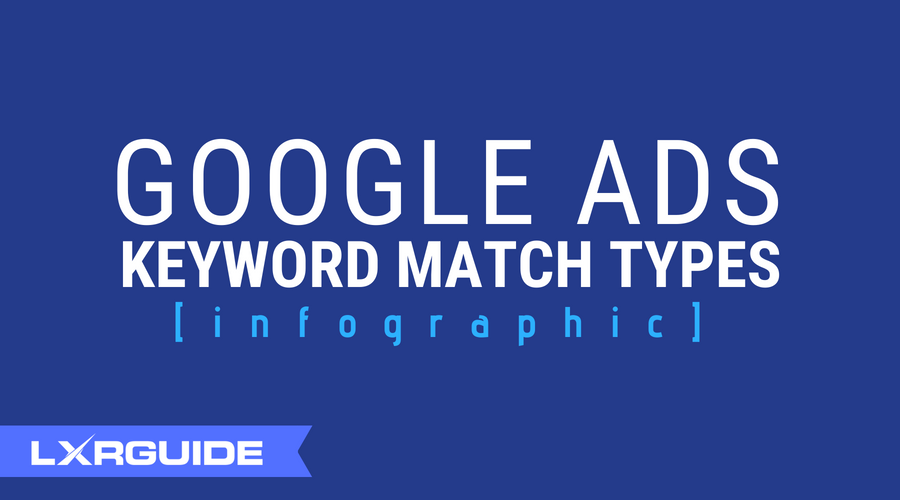



Google Ads Keyword Match Types Infographic The Lxrguide Blog



About Changes To Phrase Match And Broad Match Modifier Google Ads Help
Broad match modified keywords give you the same wide reach, but unlike other Google keyword match types, they allow more control over the searches your ad can show for Placing a "" in front of your keyword means the search query entered into Google must contain that term, no synonyms or close variantsThe keyword match types dictate how closely the keyword needs to match with the user's search query in order for the ad to be considered for the auction SoWith this change, both phrase and broad match modifier keywords will have the same matching behavior, and may show ads on searches that include the meaning of your keyword This also means that the
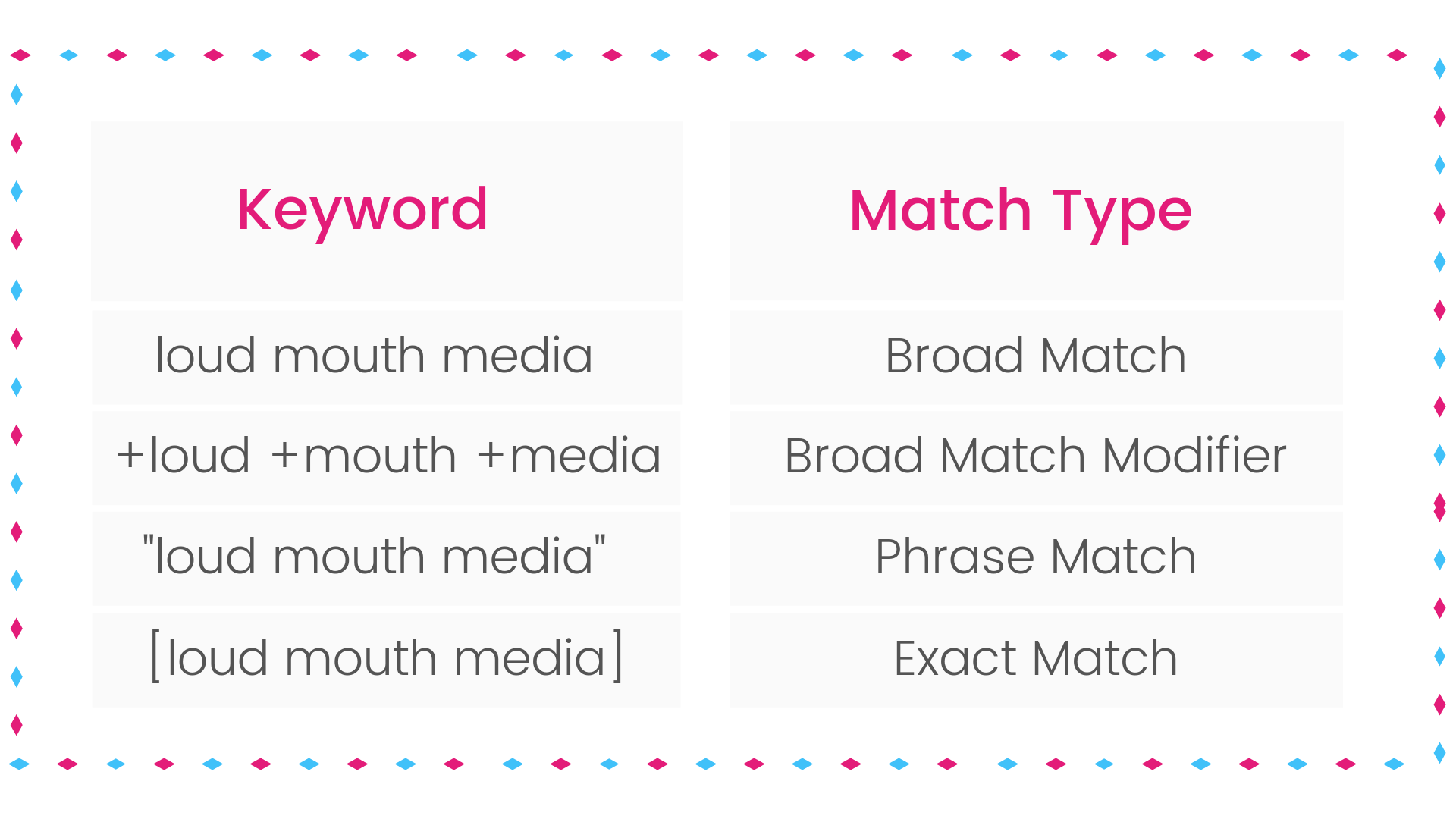



Google Ads With Keyword Match Types Loud Mouth Media




Ads Match Types Effective Use Of Keyword Match Types In Ppc Campaigns
On February 4, Google made another in a series of announcements over the years about changes to the structure of its keyword match types (the last being in 19)As of , the phrase match type will be expanded to match to more search queries, and the broad match modifier option—which was introduced in 10, and which allows advertisers to specify However, the point of keyword match types is to give advertisers more control over the queries that trigger their ads to show After all, there's a difference between accidentally misspelling a word and deliberately typing a completely different word altogether That's why advertisers were so shocked when Google publicized the further The negative keyword match types play a pivotal role in deciding how closely a keyword must match the user's search intent resulting in either showing your ad or blocking it As known, keywords can be assigned four different match types, namely broad, phrase, exact and broad match modifier Negative keywords can be listed as broad, phrase or
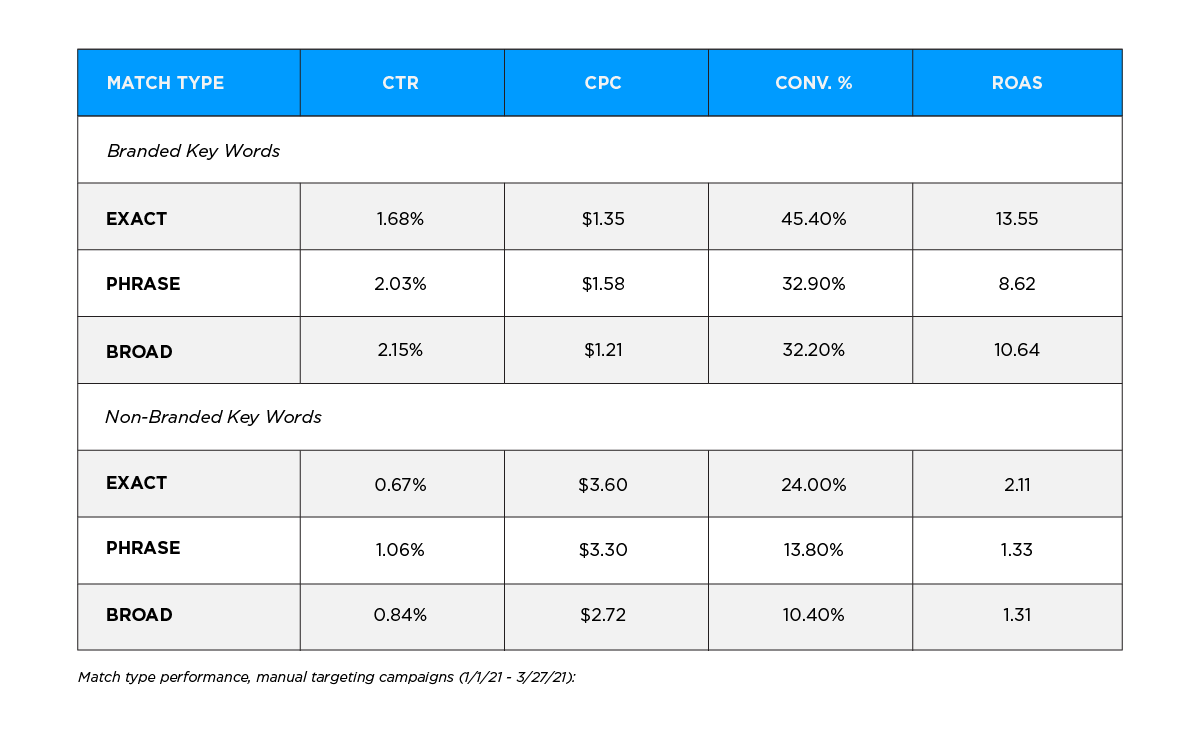



The Guide To Amazon Keyword Match Types Pattern




3 Amazon Keyword Match Types And The Reasons To Use Them Sellers Alley
Keyword Match Types Explained Let's take a look at the 5 different kinds of keyword match types The following chart is directly from AdWords' own documentation on keyword match types The 5 keyword match types as listed in AdWords' documentation Broad match Broad match keywords have no special symbol before or after the keyword Phrase Match Keywords The first type of match type is the phrase match and includes all relevant keywords that include your main keyword in the same order For example, if your primary keyword is PPC management then your advert will be triggered by keywords with that phrase in it Some examples would beBroad match type is the most common type of keyword match type used by those that are new to Google AdWords This match type allows Google to show your ads for the specific keyword(s) that you enter, but also for misspellings of those keywords, synonyms, relevant variations, and any other searches that Google reasonably believes could be




Google Ads Best Practices Keyword Match Types Optimyzd




Complete Guide To Google Ads Keyword Match Types 21 Edition
Google Ads features four match types (broad, broad match modified, phrase, and exact) that advertisers can select for their keywords to help control which searches can trigger an ad Each match type functions differently, where 'broad' matches to the widest range of search queries and 'exact' to the narrowest range Google Ads Keyword Match Type Experiment Conclusions For the traffic cost, broad match modifier was slightly cheaper (at $157 per click compared to $164 for the exact match) but had a much lower conversion rate This is why it's important to always track conversions, not just the cost per click Keyword match types are specific parameters that control which keywords trigger your ads to appear in searches There are three primary Google Ads keyword match types Exact match Broad match Phrase match Don't worry if you don't know the difference, just read on and we'll explain what each of these means and how to use them
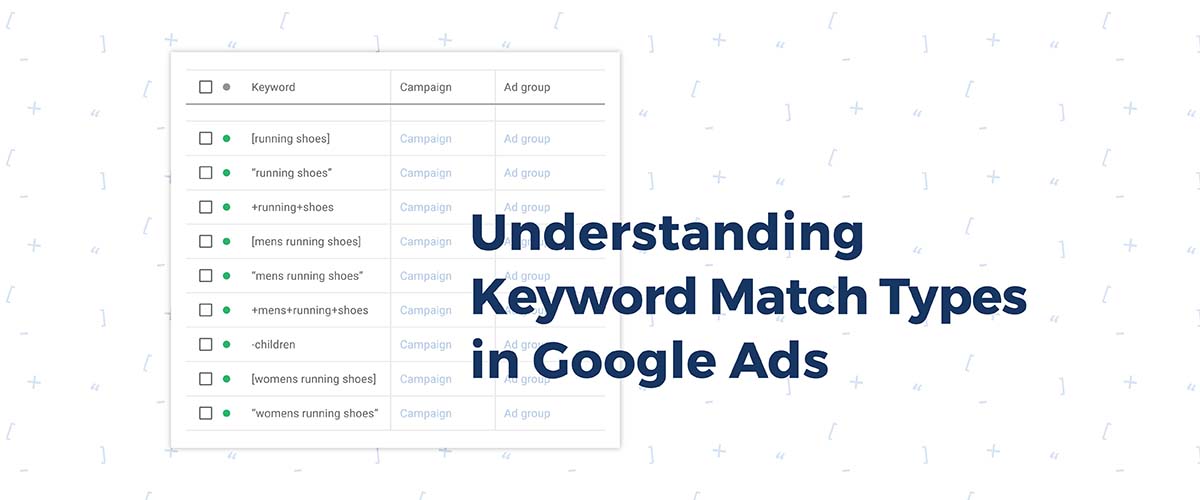



Understanding Keyword Match Types In Adwords Logical Position
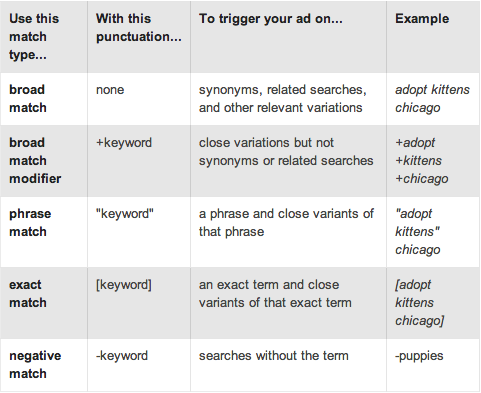



Google Adwords Keyword Match Types
What are google keyword match types?




What Does Google Ads Match Type Update Mean For Search Seer Interactive



Keyword Match Types And How To Use Them Keyword Tool
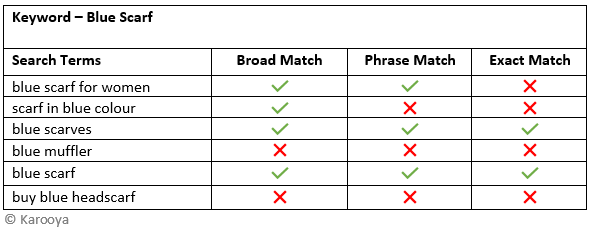



Amazon Ads Understanding Keyword Match Types Karooya




Keyword Magic Tool Match Types Semrush




How To Use Keyword Match Types In Google Ads Amplitude Digital
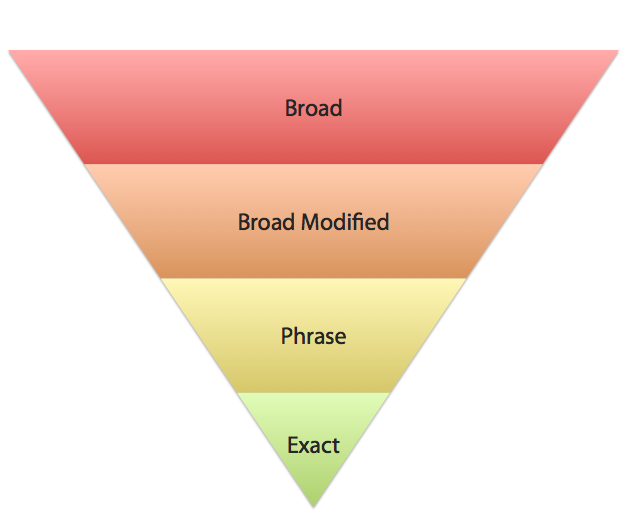



7 Keyword Match Type Tips Cardinal Path




The Ultimate Guide To Google Ads Keyword Match Types Vazooky Digital




The Ultimate Google Ads Keyword Match Types Guide Heroes Of Digital



Keyword Match Types For Google Adwords Digital4startupsdigital4startups




Everything You Need To Know About Keyword Match Types Lsm



1




Keyword Match Types Are Dead Imarc A Digital Agency




Google Ads Keyword Match Types Explanation Intelligence4start
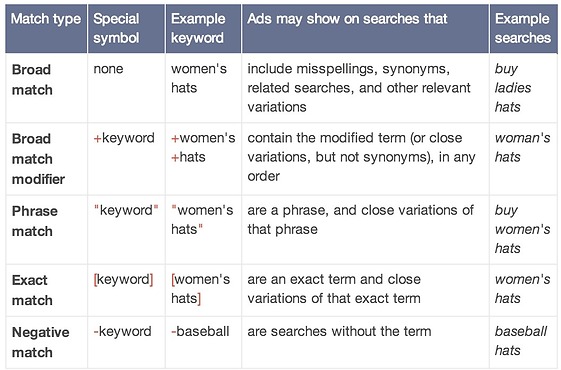



Google Ads Match Types




Broad Phrase Exact Amazon Keyword Match Types Explained



The Definitive Guide To Google Ads Keyword Match Types




Understanding Keywords And Keyword Match Types
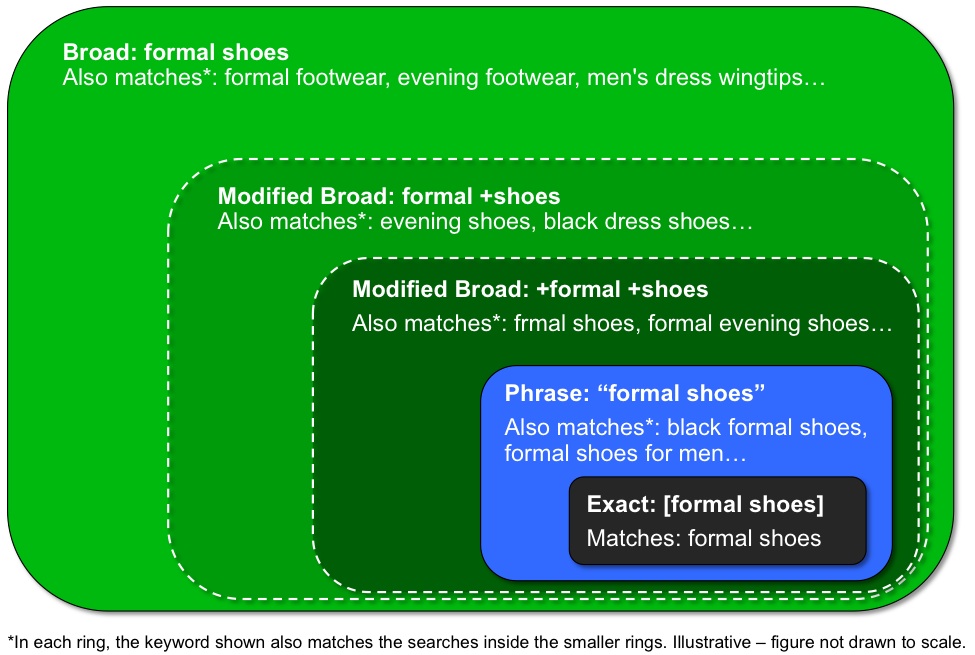



A Guide To Adwords Keyword Match Types Hallam




5 Things You May Not Know About Match Types Sidecar




How Keyword Match Types Work In 21 Store Growers



1




Adwords Experiments The Keyword Match Types Killing Your Roi



1
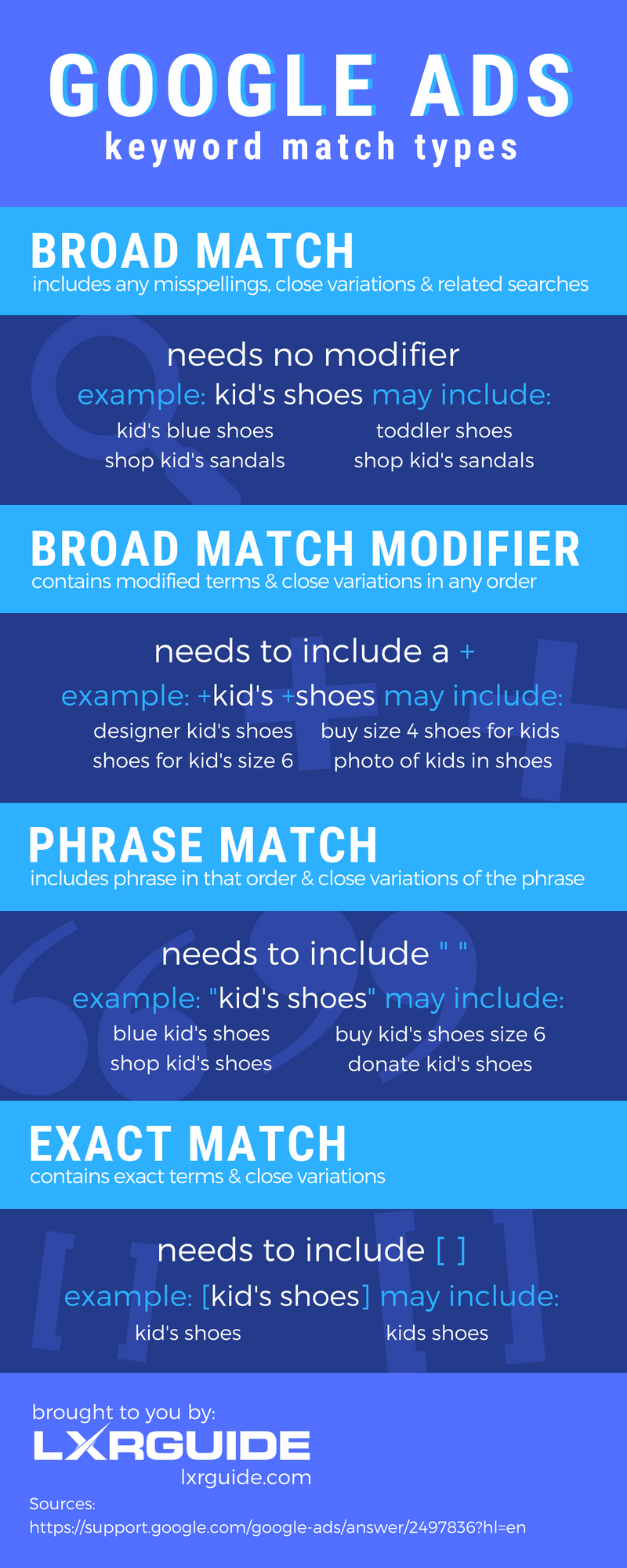



Google Ads Keyword Match Types Infographic The Lxrguide Blog




Ask The Experts An Introduction To Negative Keyword Match Types




What Is Sem Here S What You Need To Know




Keyword Match Types In 21 Honchō




Suitable Keyword Match Types For Your Campaign Bluewinston Com
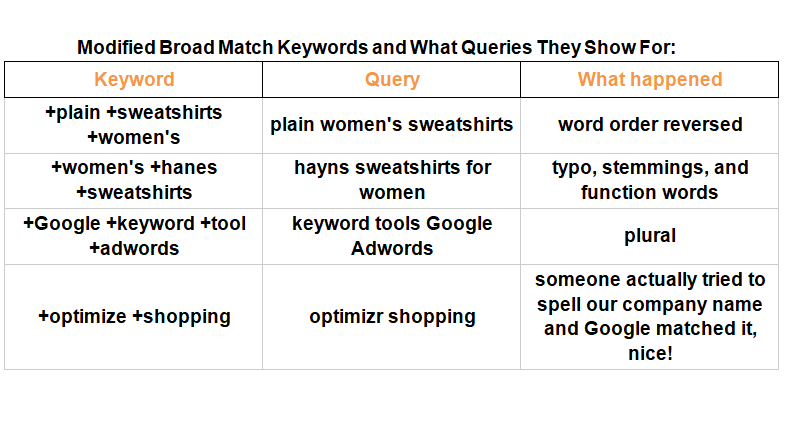



How Keyword Match Types Work After The New Close Match Variants Change




Simplifying Keyword Match Types For Ecommerce Accounts In Google Ads Savvyrevenue
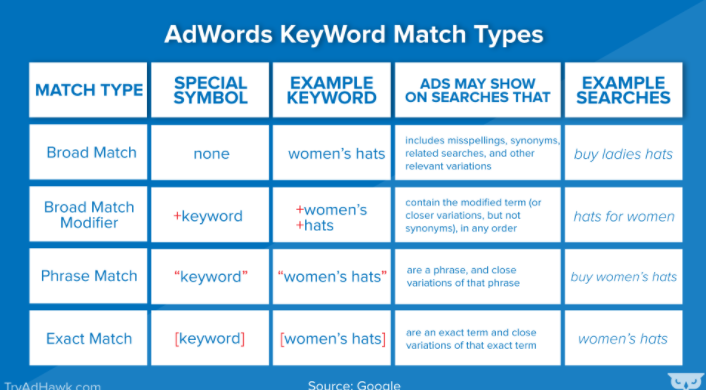



Understanding Keyword Match Types




How To Choose Keyword Match Types Suitable For Your Adwords Goals



Different Keyword Match Types In Adwords How To Use Them
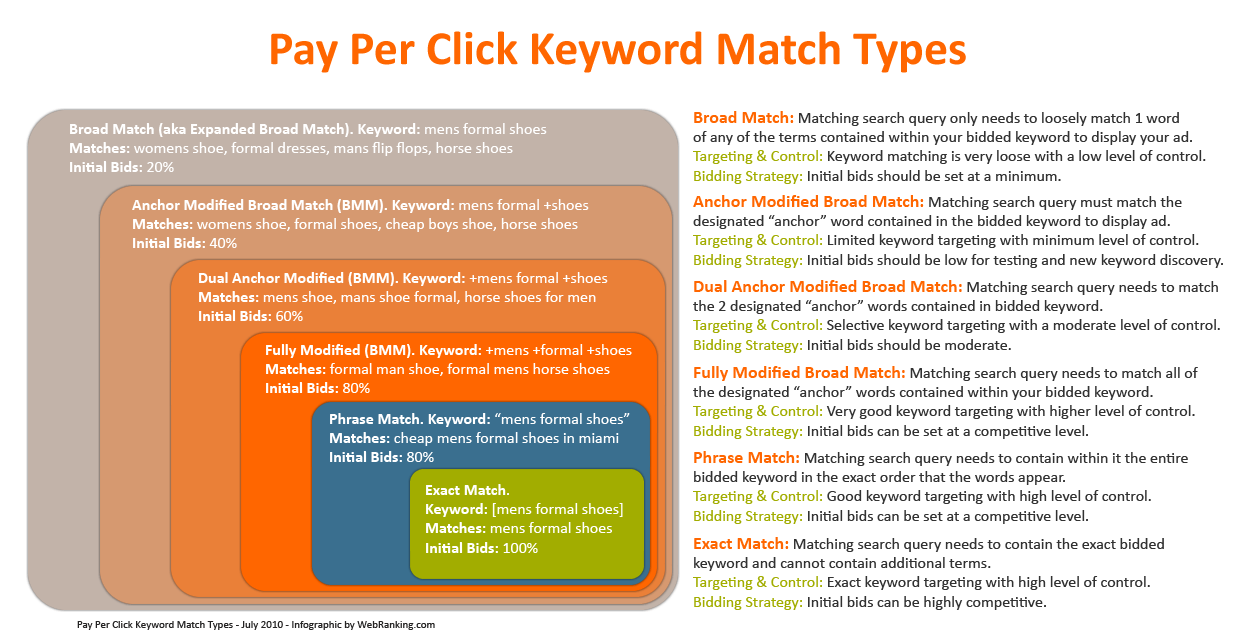



Adwords Keyword Match Types Exact Phrase Broad And Modified Broad
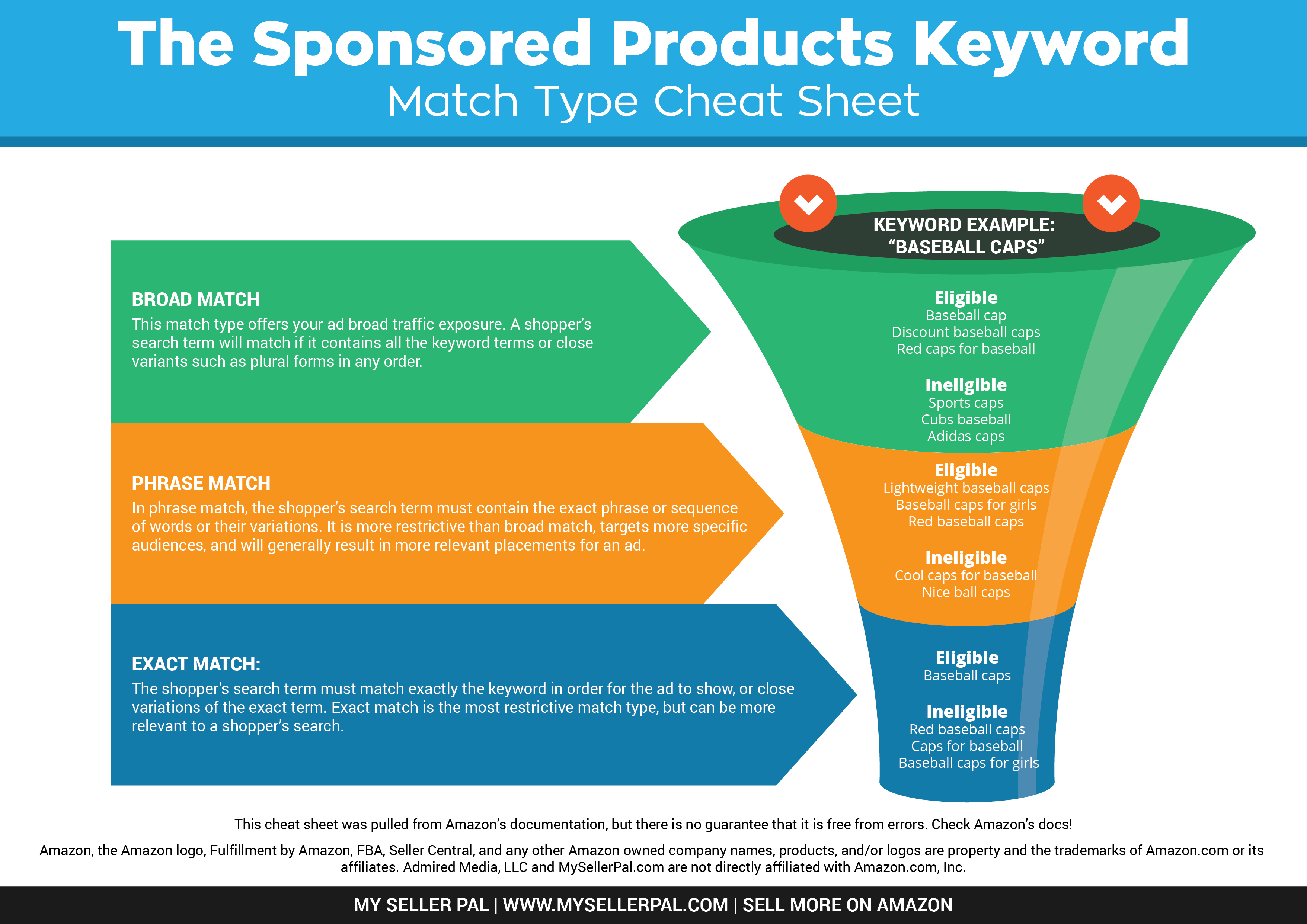



Free Amazon Sponsored Product Keyword Match Type Cheat Sheet My Seller Pal



Understanding Keyword Match Types In Proposition Marketing




Amazon Ppc Series Sponsored Products Basics Explained Sellics




What Are Keyword Match Types Options In Google Adwords Sagar Gola
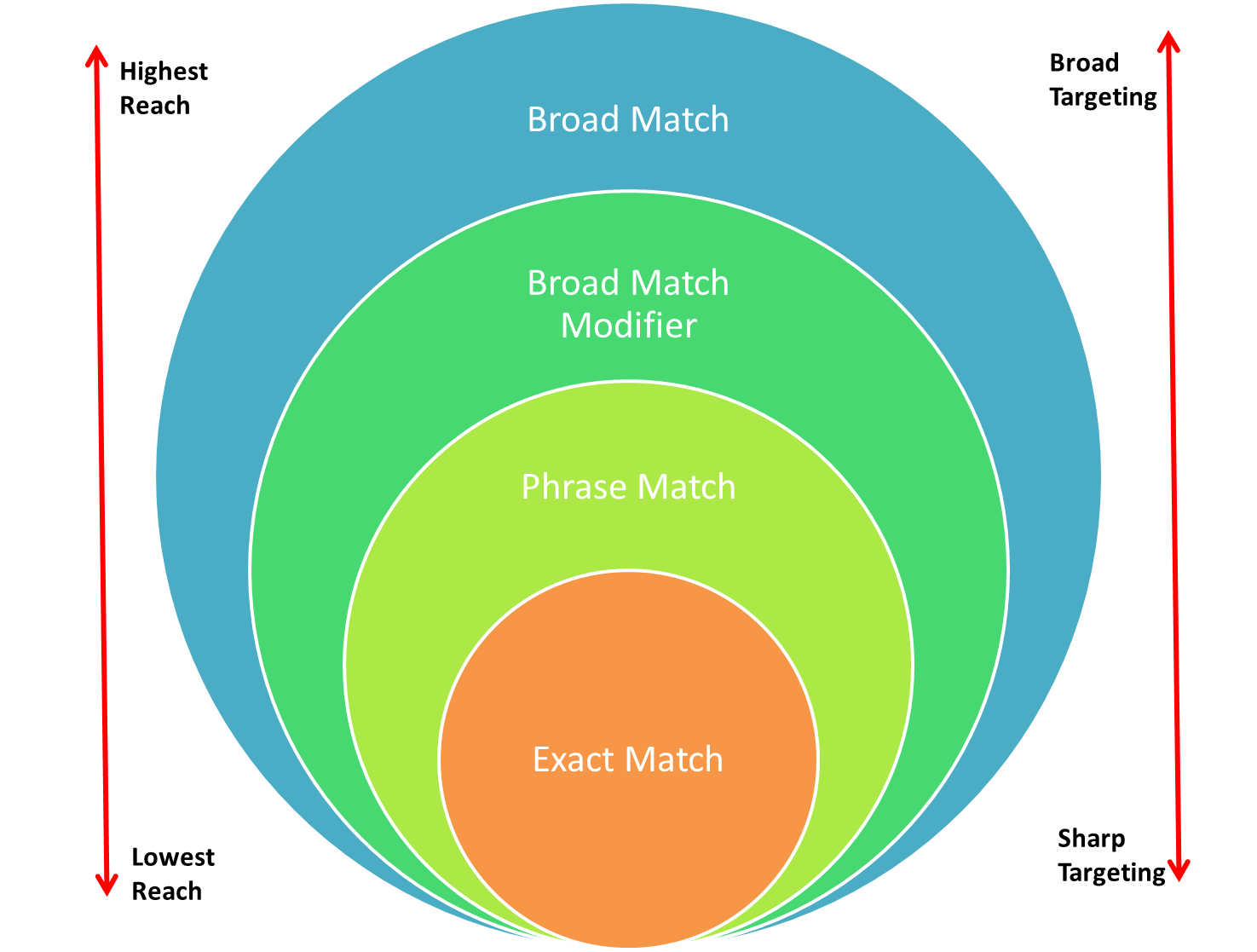



Ppc Keyword Match Types Ultimate Guide To Creating A Killer Strategy




How Keyword Match Types Work In 21 Store Growers




Bing Ads Match Types Drive Unexpected Traffic Blog Merkle




Keyword Match Types Why They Matter Digital Marketing Agency Klout9




How To Choose A Keyword Match Type On Amazon Ad Badger
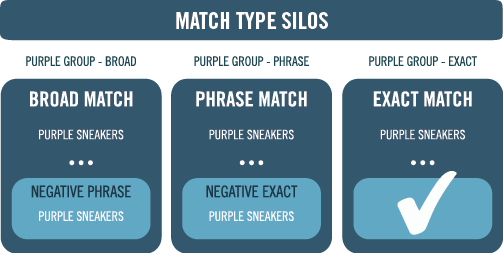



7 Deadly Google Ads Mistakes That Ll Make You Broke And How To Fix Them




Keywords Match Types Used In Google Ads Odmt




Google Ads Match Types What Are Keyword Match Types




Match Types Making The Matches That Count In Google Adwords




Complete Guide To Google Ads Keyword Match Types 21 Edition




Bing Ads Match Types Drive Unexpected Traffic Blog Merkle
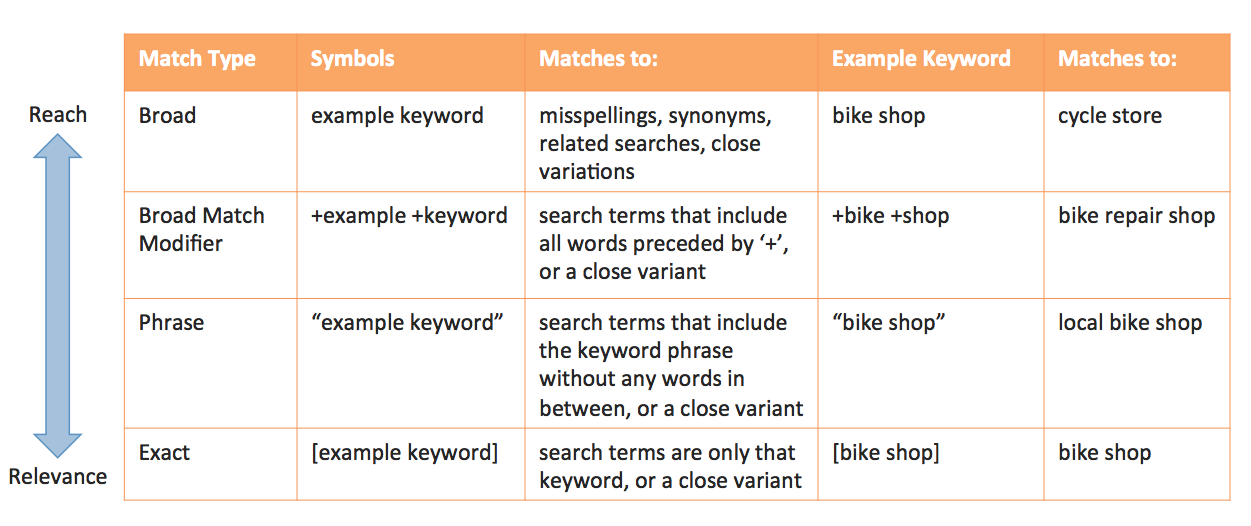



Adwords Keyword Match Types Cardinal Path
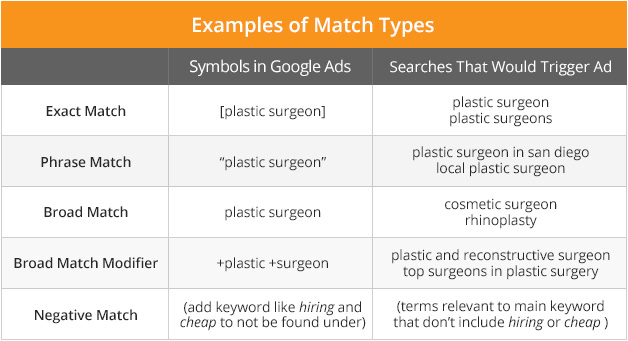



The 5 Types Of Keyword Matches On Google Ads




Google Ads New Improved Match Types Goodbye Bmm Ppc Hubbub




Google Ads Keyword Match Types Explained Youtube
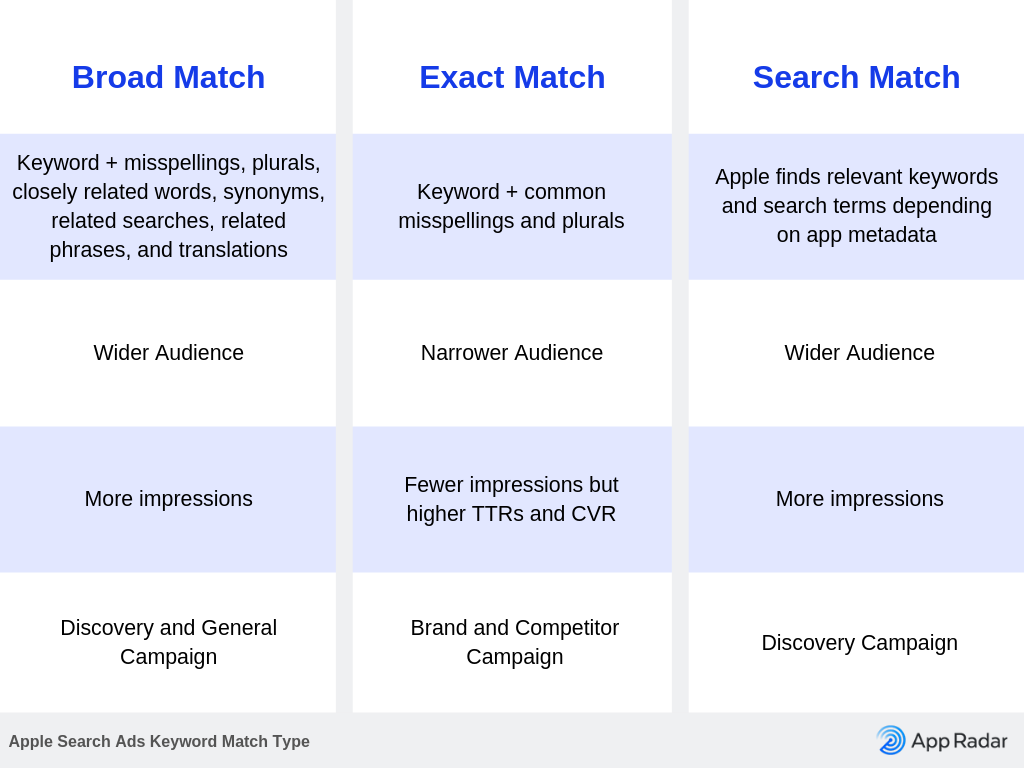



Apple Search Ads How To Optimize Keywords
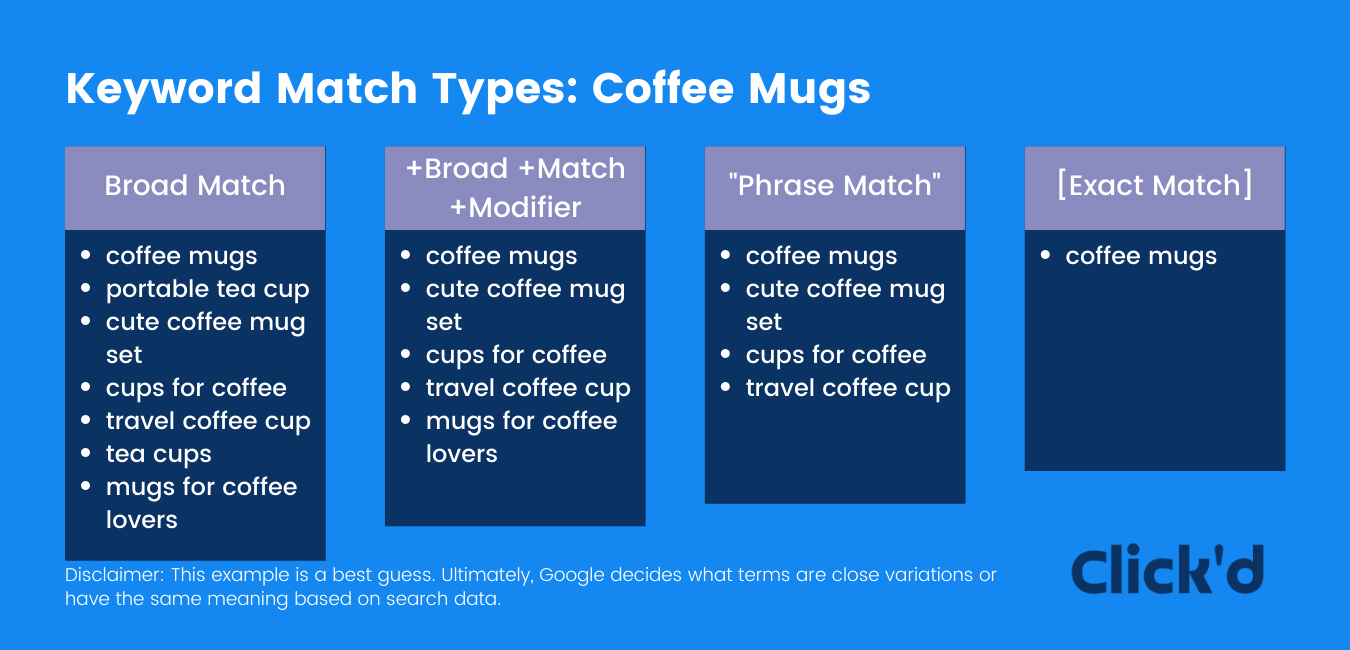



Google Ads Keyword Match Types Strategy Click D




Keyword Match Types Digital Reach Agency
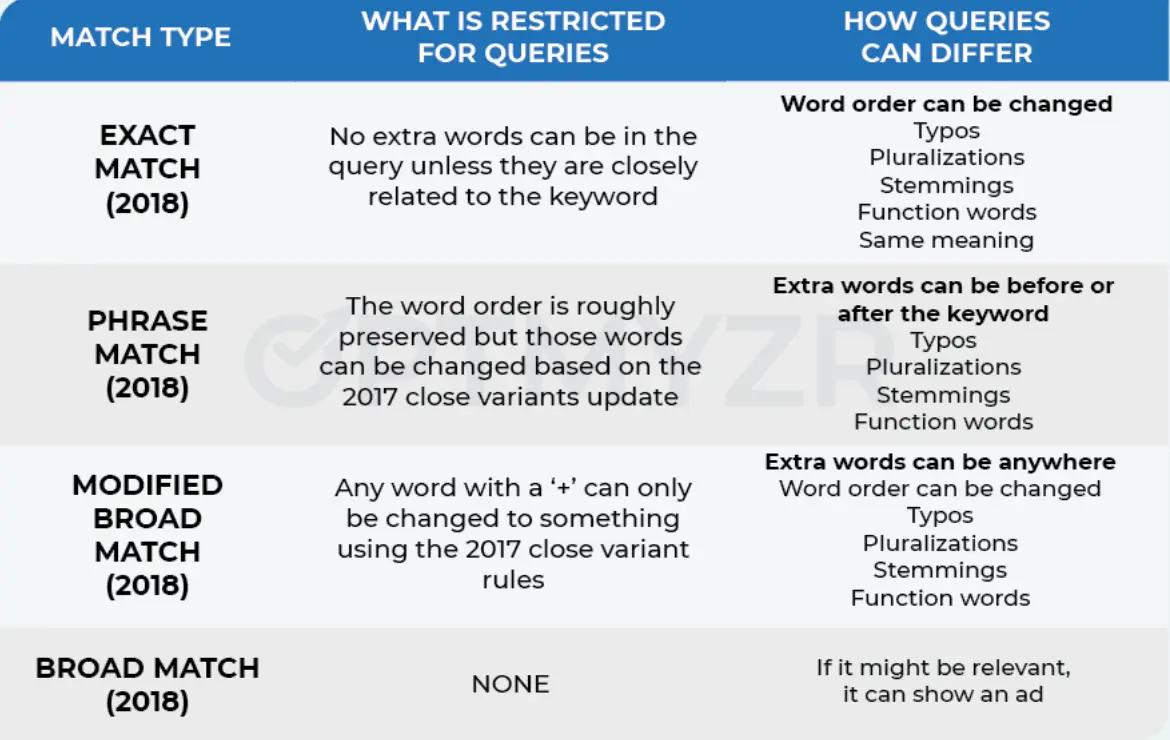



Google Ads Is Phasing Out Modified Broad Match Keywords Here S What To Do




Using Keyword Match Types



Q Tbn And9gcsukljp5thvpg 850iz7eniwz1m1kdhl2sfnjxofvatwlo3cdd Usqp Cau




The Important Role Of Keyword Match Types Airtank
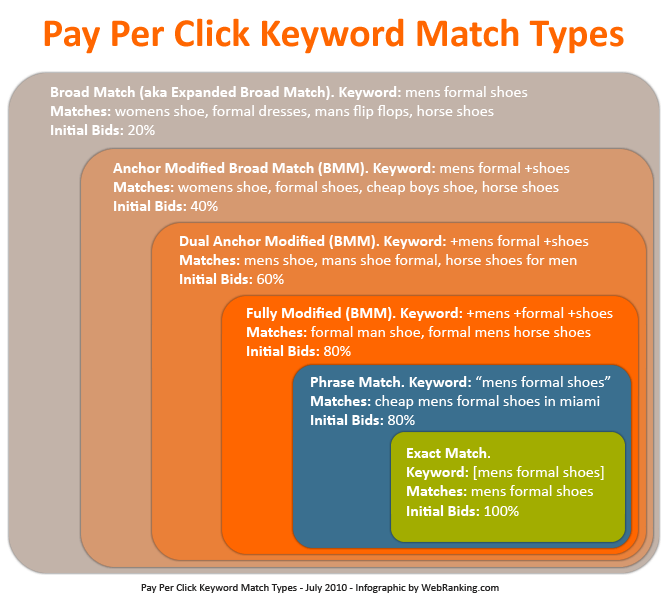



Adwords Keyword Match Types Exact Phrase Broad And Modified Broad




Amazon Ppc Series Sponsored Products Basics Explained Sellics
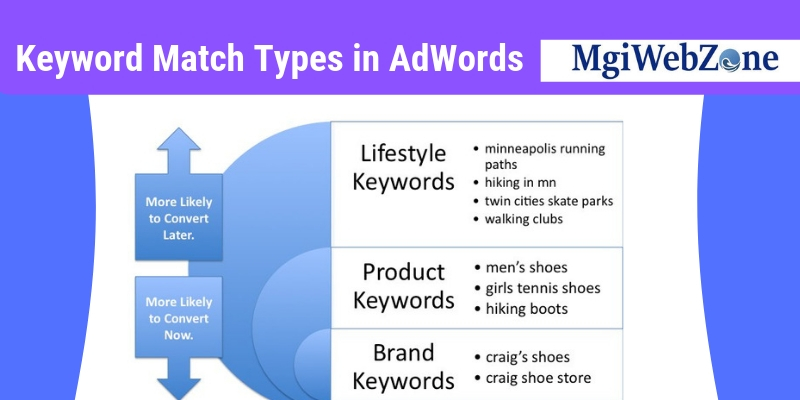



Keyword Match Types In Adwords Mgiwebzone




What Are Different Keywords Match Types In Google Adword




How Keyword Match Types Work After The New Close Match Variants Change
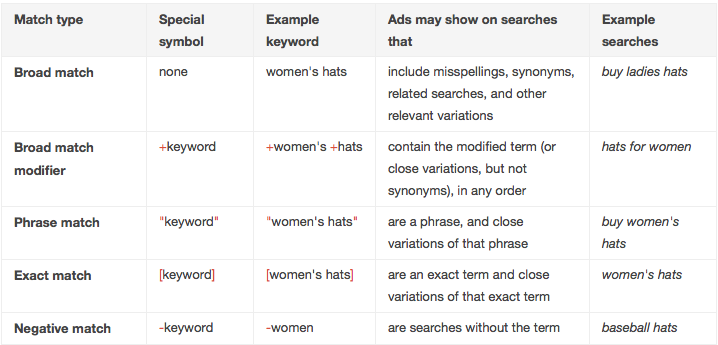



Adwords Keyword Match Types Explained Rothman Ppc



How To Use Google Ads Keywords Match Type Like A Pro
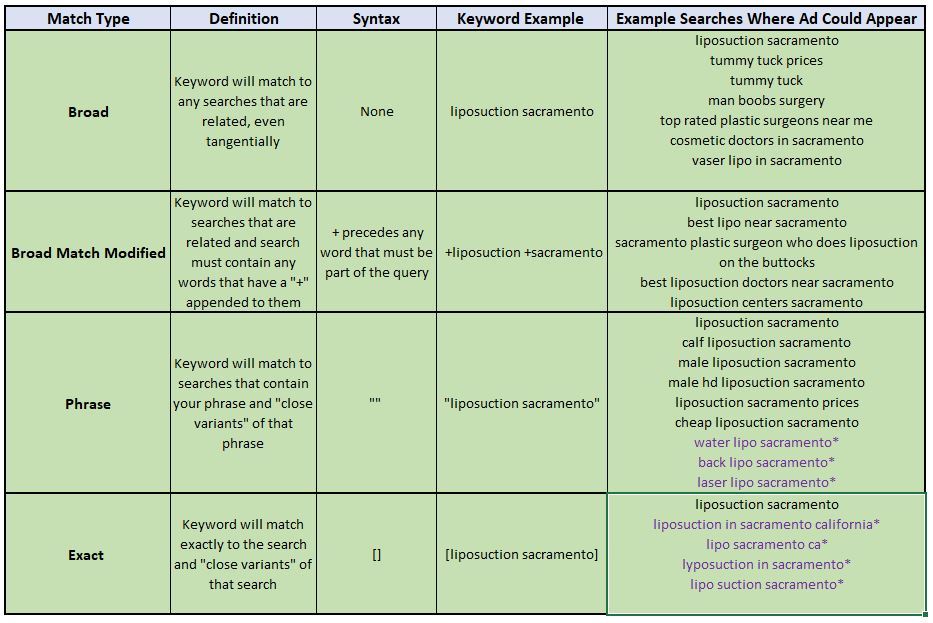



Keyword Match Types Explained With A Handy Reference Chart Clickovation




Do These 3 Things Before Google Changes How Keyword Match Types Work




Negative Keyword Match Types Google Adwords



Does It Make Sense To Add Negative Keywords To Exact Match Campaigns In Adwords Quora




Bing S Recent Announcement On Negative Match Types Clix Marketing Ppc Blog




Ask The Experts Intro To Negative Keyword Match Types Wordstream




Google Ads Keyword Match Types Clever Ads Blog



About Keyword Matching Options Google Ads Help




Using Match Types For Better Ppc Management
コメント
コメントを投稿